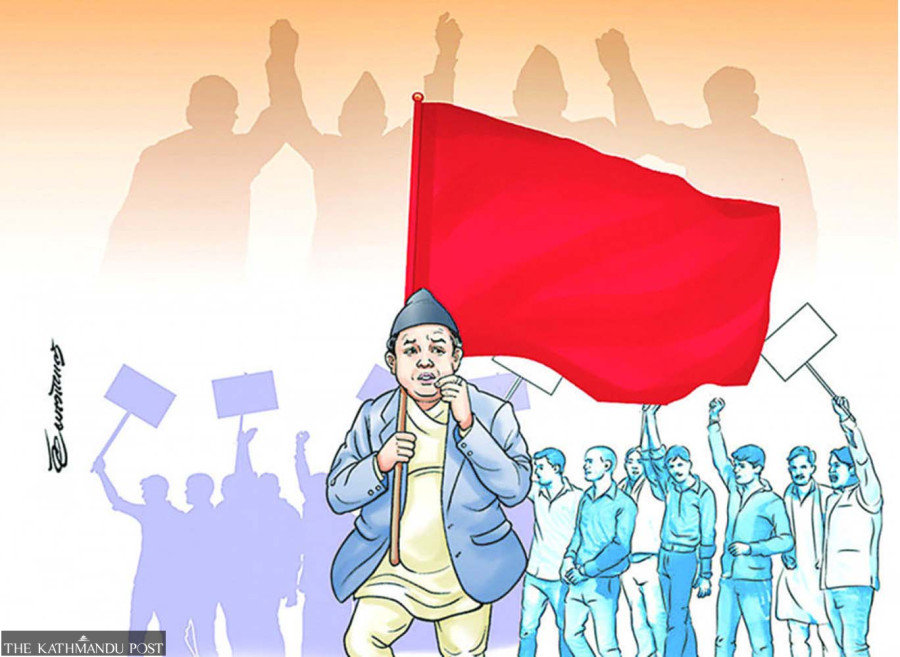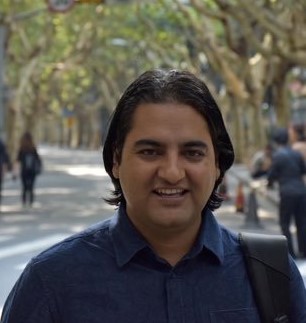Politics
Kinship to be decisive in Sudurpaschim elections
Political parties have picked candidates who appeal to voters from their ancestral districts.
Tufan Neupane
When the entire country was gripped by a heated debate on the delineation of federal provinces during the constitution-making process, a sizable constituency in the then Far Western Development Region demanded that the entire region be made a single federal province. They took to the streets protesting the proposal to include Kailali and Kanchanpur districts in another province that was to be carved out of the region’s southern plains. The people mainly of hill origin claimed that Kanchanpur and Kailali districts should be inseparable parts of an ‘undivided far-west’.
On the other hand, people from the Tharu community in the southern plains of the region launched protests demanding a Tharuhat province composed mainly of Kailali and Kanchanpur districts.
Owing to the influence of powerful leaders of hill districts like Sher Bahadur Deuba of the Nepali Congress, Bhim Rawal of the CPN-UML, and Lekhraj Bhatta of then UCPN (Maoist), the entire far-western development region was named Province 7, which was later renamed Sudurpaschim Province by the provincial assembly.
Though the leaders succeeded in keeping the entire region in a single province while federating the country, local politics continues to be riddled with factional infightings.
As the federal and provincial elections are round the corner, Kailali and Kanchanpur, two Tarai districts of Sudurpaschim, are heating up with ‘Tharu versus Pahadi’ politics. The Pahadi or hill community is further divided into those from ‘Karnali east’ and those from ‘Karnali west’ as well as those from one district versus another district.
The political parties and the contestants are in the fray hoping to capitalise on the divisions among the electorate. The origin of the candidates will be the decisive factor in winning the upcoming November 20 elections. Let us observe this dynamic in Kanchanpur district.
Besides the indigenous Rana Tharu community, Kanchanpur is now home to the Brahmin and Chhetri people who migrated from seven hill districts, and several Janajati communities resettled by the government decades ago. Mahendranagar Bazaar, the main marketplace in the district, lies in the federal lower house constituency number 3. Majority of the voters here are from the Khas community who migrated from hill Baitadi and Dadeldhura districts.
The ruling alliance has fielded Ramesh Lekhak for the lower house seat from Kanchanpur-3 while the UML’s candidate for the same seat is Niru Pal. The electoral contest here is being seen not only as a competition between the UML and the Congress but also as one between the people of Dadeldhura and Baitadi origins. Lekhak is of Baitadi origin while the Pal family migrated from Dadeldhura.
The situation is similar in constituency number 1 and 2. The Congress has fielded NP Saud of Dadeldhura origin for the Kanchanpur-2 seat to strike a balance between the communities of Dadeldhura and Baitadi. But the UML has fielded Nara Bahadur Dhami of Baitadi origin to challenge Saud.
The indigenous Tharu community as well as Tamang and Magar communities are the major ethnic groups living in Kanchanpur-1. The UML fielded Tara Lama Tamang while the ruling alliance picked Bina Magar as candidate for the constituency. Both the parties have tried to strike a communal balance by fielding Tharu candidates for the corresponding provincial assembly seats.
The competition in Kanchanpur-2 and 3 is going to be between the people of Baitadi origin and those of Dadeldhura origin. Besides politics, the people of Baitadi and Darchula stand together in trade and business. Likewise, the people of Dadeldhura roots claim themselves as indigenous community after the Tharu claiming that their forefathers migrated to Kanchanpur generations ago. They have for long had a stronghold on politics, education, trade and business in Kanchanpur.
Kanchanpur residents of Bajhang and Achham origins often stand together on major issues. Usually, whoever gets their support gets elected. People of Doti and Bajura origins are in small numbers in Kanchanpur and so not in a position to influence election results.
“The political parties are under tremendous pressure to maintain regional balance during the elections. Otherwise, their electoral campaigns may not yield desired results,” said Tekraj Panta, a professor of political science who is also a retired dean of Sudurpaschim University. “Regional politics is strong in Kailali and Kanchanpur districts while the politics of ideology is quite weak.”
Panta says Ramesh Lekhak was picked as a Congress candidate in Kanchanpur-3 because of his Baitadi roots.
Social Development Minister of Sudurpaschim Province Gobinda Raj Bohara also admits the people who migrated to Kailali and Kanchanpur from various hill districts have a huge influence in the region’s politics. “They vote for candidates of their own community. The political parties are acutely aware of this dynamic and field their candidates accordingly,” said Bohara.
Such is also the situation in Kailali district. Although Tharu people are dominant in four of the total five constituencies in Kailali, there apparently is a trilateral competition in Dhangadhi, the provincial headquarters, among the Tharu, and the people of Doti and Dadeldhura origins.
The Pantas, Panerus, Bhattas, Bhandaris and Joshis, all of Doti origin, have remained quite influential in Dhangadhi for the past three generations, locals say. They are comparatively more dominant in the Congress than in other political parties. An intra-party rift has opened up of late after the people of Dadeldhura origin, who are outnumbered by those of Doti origin, rose to the leadership of the local units of the Congress party.
“People who migrated from Doti were in a majority and more influential for a long time. But the people of Dadeldhura rose through party ranks here after Sher Bahadur Deuba was elected Congress president,” said Gambhir Singh Air, a legal practitioner based in Dhangadhi. “But the Doteli people refused to accept the dominance of those of Dadeldhura origin as the former are in a majority in Kailai. Hence the rift and rivalry between them.”
Sher Bahadur Deuba was elected to the second Constituent Assembly from both Dadeldhura and Kailali in 2013. Pushkar Nath Ojha of Doti origin won the by-election after Deuba resigned from the Kailali constituency. Ojha wanted to contest for a federal seat from Kailali-5 in 2017, but the party denied him a ticket after Deuba’s wife Arzu decided to stand for election from the constituency.
The Doteli community including Ojha did not accept Arzu as their candidate and as a result, she lost the election. The Congress leadership expelled Ojha from the party for five years, accusing him of betraying the party’s official candidate.
This time Ojha is contesting as an independent candidate from Kailali-5. Fearing lack of cooperation from disgruntled party members again, Arzu changed her mind at the eleventh hour and opted for a safe path of reaching the parliament through the proportional representation route. Arzu fielded her personal secretary and nephew Prakash Deuba for provincial assembly from Kailali-5 (B). But Kshitiz Bhandari of Doti origin is standing as a rebel candidate against Prakash Deuba of Dadeldhura, once again highlighting the bitter rivalry between politicians from the two districts.
And in Kailali-4 lower house seat, the Congress-led alliance has pitted Bir Bahadur Balayar of Doti against UML’s Lekhraj Bhatta, who is of Doti origin. “Kailali-4 is mostly populated by migrants from Doti. Initially, the Congress had planned on fielding Nain Singh Mahar, who is of Dadeldhura-origin, in the constituency. But the party changed its mind and picked Balayar to go toe-to-toe with Bhatta of the same community,” said Air.
Kailali-3 is a Tharu stronghold. Most people of hill origins in this constituency are united as they will be in minority if they are divided along district lines.
(With inputs from Mohan Budhaair in Dhangadhi and Bhawani Bhatta in Mahendranagar)




 13.12°C Kathmandu
13.12°C Kathmandu














